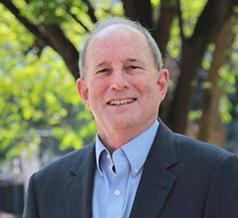
In what has become an increasingly rare occurrence in the nation’s capital, on Nov. 15, President Joe Biden signed a major piece of legislation into law following the passage of his $1 trillion Infrastructure Investment and Jobs Act by Congress. Tucked inside the larger bill is the Nonprofit Energy Efficiency Act, which could mean big changes for local Jewish nonprofits.
Because of this act, “the U.S. Department of Energy will have a year to set up a new $50 million pilot program that will allow nonprofits to get grants for up to $200,000 to install energy-efficient materials,” said Howard Libit, executive director of the Baltimore Jewish Council. “The nonprofit has to own and operate their own building, so it’s perfect for synagogues, schools, buildings owned by The Associated: [Jewish Federation of Baltimore].
“We think it’s a real great opportunity to make energy-efficient upgrades over the next year, with the support of the federal government,” Libit added.
Groups like the Jewish Federations of North America and the Orthodox Union played a major role in ensuring the act was included in the larger infrastructure bill, Libit said. They communicated constantly with key legislative staff to ensure they understood the importance of the act.
Libit said that many of the details of this new grant program have yet to be ironed out, as the wording of the bill gives the Department of Energy some time to nail down the specifics. Once those specifics are clear, though, he expects that The Associated, the BJC and the Jewish Federations of North America will work together to help guide community institutions in applying for this funding.
Libit noted how the local community has already begun making its structures more energy efficient over the last several years, such as by installing solar panels, and he believes the act will create even more opportunities for community organizations to go green.
“One of the challenges is, I think, for institutions that own their own buildings, is that it’s sometimes hard to find the money to make those upgrades,” Libit said. “It’s just coming up with $100,000 or $150,000 or $200,000 for these energy-efficient upgrades, which ultimately pay off in terms of using less energy in the long term, and better for our environment and our future, but it can be hard to come up with that money upfront. So a grant program like this can really help move things along.”

As the criteria around applying for funding become clearer, staff at Chizuk Amuno Congregation expect to look it over in detail and decide whether to apply, said Lee Sherman, executive director of Chizuk Amuno Congregation & Schools. He noted that the synagogue is constantly updating and replacing parts of its heating, ventilation, air conditioning and lighting systems, along with its outside windows and doors, and that these could be possible areas of focus for any funding received.
“We’re always looking for those things, and there’s much work to be done with an aging infrastructure like ours, to continue those updates,” Sherman said. “So I’m sure that we’ll have probably multiple possibilities that could meet the criteria of the grant, and we’ll certainly be looking for that when the grant becomes active.”
Libit expects that there will be stiff competition for this funding once it becomes available.
“I would anticipate more institutions will apply for this money than there’s money available, just like [what] happens with the homeland security grant program every year,” Libit said. “The number of applications is multiple times larger than the pool of money available with the homeland security grant. I would anticipate you will encounter something similar with this energy grants program.”







